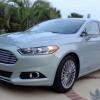Search the Community
Showing results for tags 'EPA test is totally unrealist'.
Found 1 result
-
This may belong in the topic EPA test is totally unrealisticbut I just wanted to get it posted. Any corrections of locations would be appreciated. I apologize for the length. Here is a link to the article-- http://blog.caranddriver.com/why-your-trip-computer-isnt-giving-accurate-mpg-readings-and-how-to-fix-it/ Here's the article about why it is so difficult to get accurate results of mileage: From Car and Driver Sept. 2013 In our April 2013 issue, we took the EPA to task for its unrealistic fuel-economy assessments of hybrids. But is it possible that the EPA isn’t the only one prevaricating about fuel economy? This is a subject near and dear to your author. Every time I fill up my 2007 BMW 335i, I record the gallons used, the odometer reading, and the trip computer’s mpg report. Given the vagaries of filling a gas tank to exactly the same level at each fill-up, some variability is understandable. But, in years of doing this, I’ve found the BMW’s trip computer has always read higher than the mpg calculations based on the fuel used and the corrected odometer readings. Over the course of 20,340 miles and 56 fill-ups, the mpg inflation ranged from 0.8 to 2.6 mpg. [While Car and Driver’s long-standing policy is to report mileage to the nearest whole number due to our lack of confidence in higher-precision figures, we’re making an exception for this study. Bear with us.] On average, the BMW’s trip computer reported mileage 1.4 mpg higher—nearly 6 percent better—than calculated. It wasn’t just my car. During a 1289-mile round trip from Ann Arbor to New York, C/D’s long-term Acura ILX averaged 29.5 mpg. But its trip computer claimed 31.4—optimistic by more than 6 percent. We also took the long-term Kia Sportage to Washington, D.C., and back. Over 1064 miles, the Sportage achieved 24.6 mpg according to pump and odometer readings. However, its trip computer padded that figure by 1.1 mpg to 25.7—a 4.5-percent inflation. Every fill-up was slightly optimistic. Mark Allen, GM’s director of global energy, mass, and aerodynamics, says some inaccuracy is unavoidable. “The density of fuel varies. We have no way to measure it. Mobil might be different than Shell. Summer gas to winter gas could be a big difference.” And then there are vapor-recovery systems. With modern cars’ sealed fuel tanks, gasoline vapor accumulated in the tank is absorbed by a charcoal-filled canister. Periodically, this canister is purged by the engine. “If the weather is hot, you generate lots of purge,” says Allen. “This unmetered fuel isn’t counted by the trip computer.” Honda uses additional inputs to calculate trip mpg. “We look at the fuel-consumed data that comes from the engine-control computer, but we also track the float sensor measuring the fuel level in the tank,” says Raj Manakkal, chief engineer for electrical and infotainment devices. He also points out that, due to temperature changes, plastic fuel tanks can expand and contract by as much as a liter. On the Acura ILX, that yields a total variation of 4 percent. These sources of potential imprecision are real, but if you want to accurately track fuel consumption with your trip computer, you need to calibrate it [see below]. On the 335i, a service menu is accessible via an arcane procedure I found on the internet. Within that menu, I was able to change the trip-computer calibration. Changing the default value from 1000 to 1035 aligned the trip computer with reality. Sadly, no such adjustment exists to fix the BMW’s appallingly optimistic speedometer. CALIBRATION STATION On your next long trip, stop next to a mile marker and reset your trip odometer. One hundred or more miles later, stop once again and note how your odometer compares to the road mileage. Then, at your next fill-up, reset your trip computer and fill your tank according to this procedure: 1) Fill at the maximum flow rate until the pump clicks off. 2) Wait 10 seconds, then continue filling at the minimum flow rate until the nozzle clicks off again. 3) Repeat this procedure two more times. Ideally, you should do this using the same pump at the same station. Even with a calibrated odometer, a single fill-up has too many variables for an accurate calculation. But if you log at least three fills like this, you should have sufficient data to divide your corrected-odometer miles by the indicated pump gallons to obtain an accurate mpg. Compare that mpg figure to what the trip computer reports and you’ll have your correction factor.


